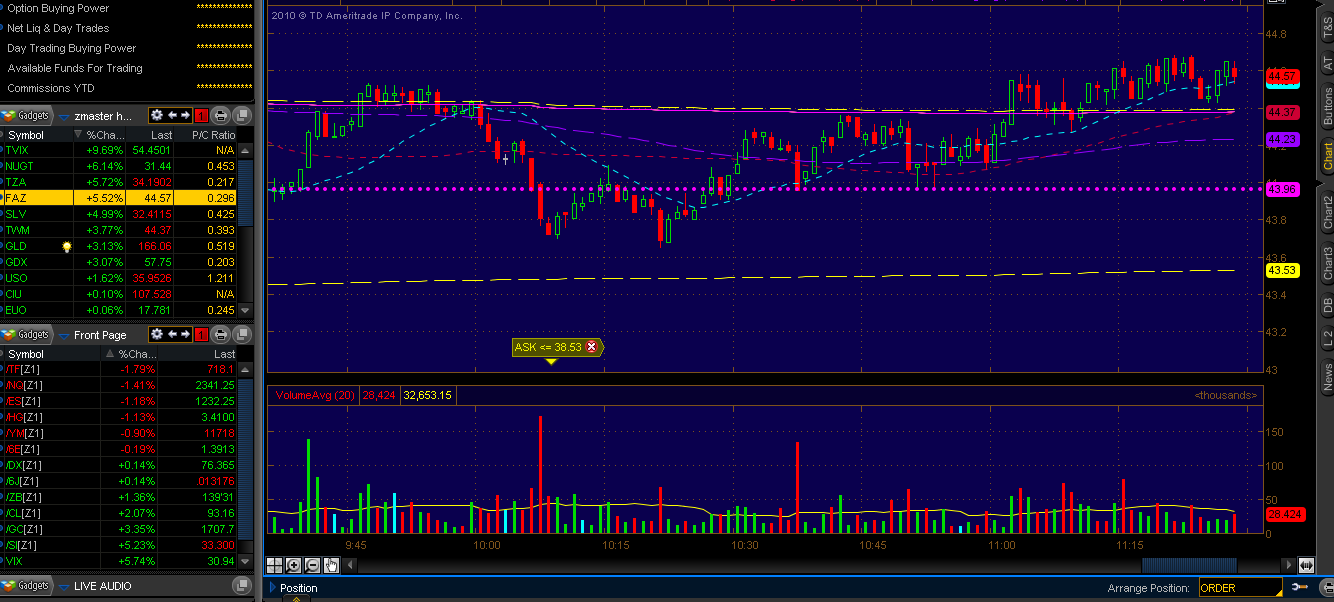-
the difficulty of being human
Should I deviate from the robot, I no longer participate in its outcomes. That is, I'm no longer fully robotic.
This is true. But it poses a serious question: can one really be robotic?
Perhaps. Perhaps not and remain a sentient creature.
I would offer a third choice: use the robot as a teaching tool and as a feedback tool.
The problem I encountered today emerged from my recent tendency to "read the tape" as a method by which I understand real time market activity. I've found that all my artful charts do not work as well as simply folloing a price/volume chart with a Christmas tree of lights on the side that display the prices and changes of stocks and commodities and currencies that interest me. E.g.,

They interest me because I perceive corrrelation. Since I watch them all day over several weeks, I develop an intuition about what is happening. Frankly, via small stake trades, I'm learning that my intuition is profitable. Moreover, I want to add that my intuition is a form of reasoning based on pattern recognition. (I regret that, unlike many of the wizards here, I'm unable to translate my intuitions into mathematical language. I am, however, at work on narratives that give my intuitions greater integrity).
What is perhaps superior about my intuitions over those of the robot is that my intutions are evolving real time. I adjust to feedback on a moment by moment basis. My chief draw back remains emotion. Emotion can cloud and inspire thought and action. They are unpredictable. This is why the robot is valuable. While it cannot adapt itself to every short term change in the market (e.g., GLD and GDX's recent correlation), it does provide an opportunity to act without emotion. It sets a standard of objectivity that I now take to be a real time teacher.
The question of whether or not I can improve upon the robot is a quantifiable question. But the degree to which I learn from the robot is, it seems to me, a more crucial question.
 Posting Permissions
Posting Permissions
- You may not post new threads
- You may not post replies
- You may not post attachments
- You may not edit your posts
Forum Rules




 Reply With Quote
Reply With Quote